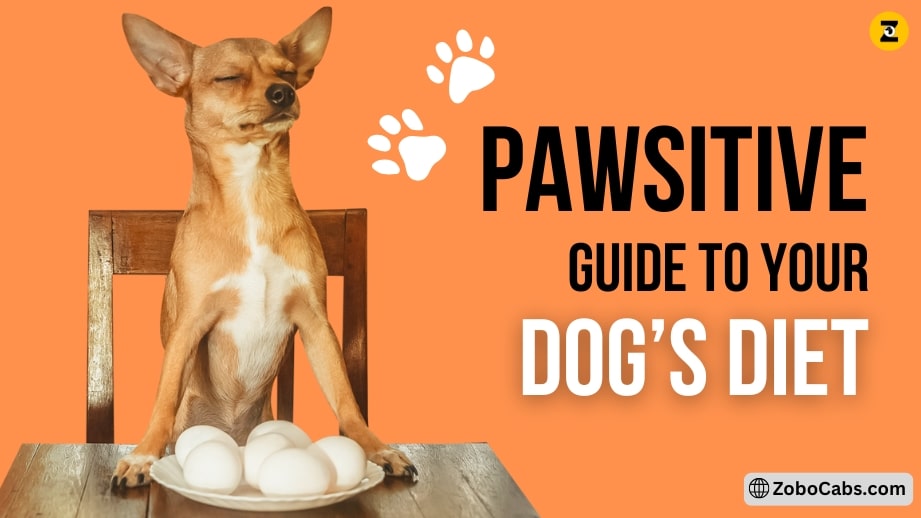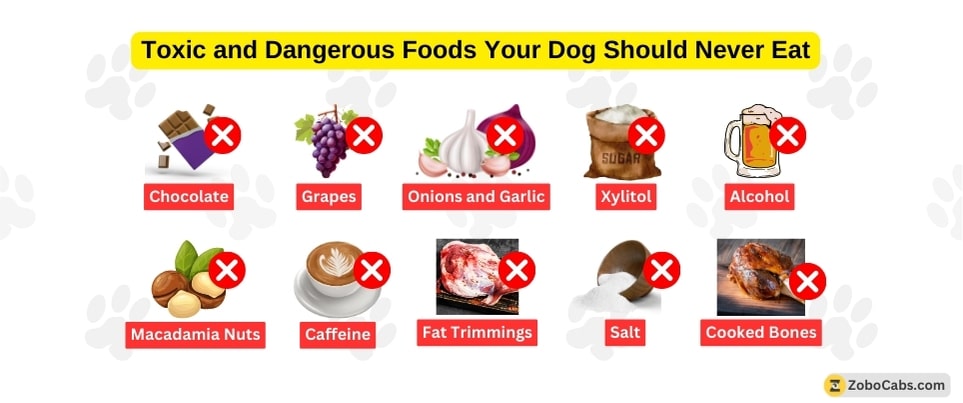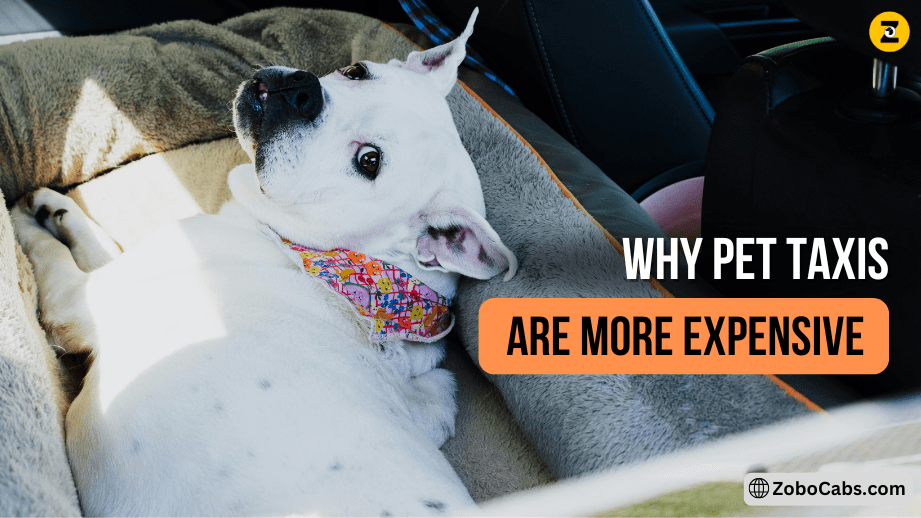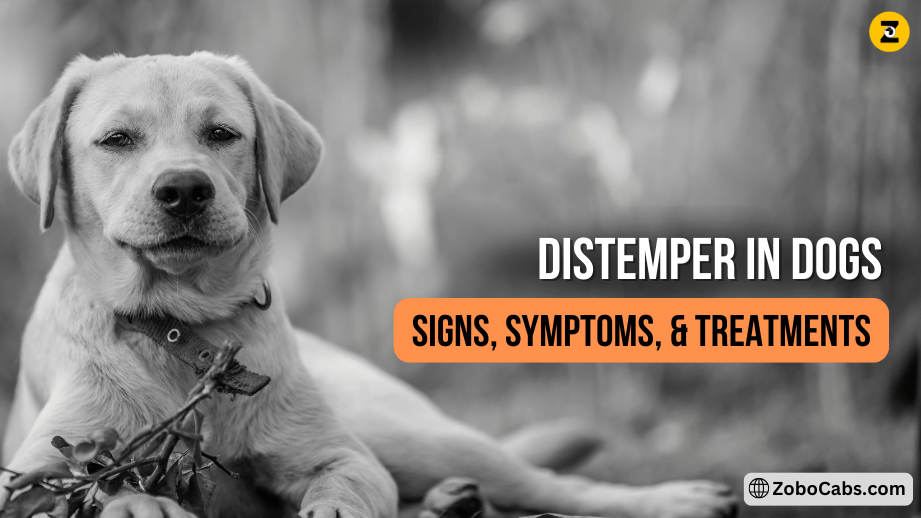A Pawsitive Guide to Your Dog’s Diet: A Comprehensive Look

In this article:
What a dog eats is very important to their health and well-being as a whole. What your dog eats affects their mood, energy level, and coat health, just like it does for us.
In this blog, we’ll talk about the most important parts of your dog’s food that will help them live a long, healthy, and happy life.
The Basics of Canine Nutrition
High-Quality Dog Food
When choosing food for your dog, always opt for high-quality options. Whether you choose commercial dog food or home-cooked meals, ensure they provide the necessary nutrients.
- Commercial Dog Food: Look for brands that use high-quality ingredients. Real meat (like chicken, beef, or lamb) should be the primary protein source. Avoid foods that are filled with fillers like corn and soy.
- Home-Cooked Meals: If you’re preparing food at home, consult your vet to ensure you meet your dog’s nutritional requirements. Homemade meals can be a great option, but they need to be balanced for vitamins, minerals, and proteins.
Fresh Water is Essential
Make sure your dog always has clean, fresh water to drink. Drinking water is important for humans as well as dogs. Some dogs, especially older ones, may hesitate to drink water, so consider using a pet water fountain to encourage regular hydration.
Treats in Moderation
Healthy treats can be a fun way to bond with your dog, but they should always be given in moderation. Here are some great options:
- Cooked, Plain chicken or turkey: protein-packed and easy to digest.
- Vegetables: Carrots, green beans, and broccoli are healthy options.
- Fruits: Berries or apples (make sure to remove seeds) are tasty and healthy.
Avoid giving your dog sugary or fatty treats, as they can lead to weight gain and other health problems.
Foods to Avoid: A Canine No-No List

Dogs should never be fed several foods, as they can cause serious health problems. Keep an eye out for these:
- Chocolate: Contains theobromine, which is bad for dogs.
- Grapes and Raisins Can cause kidney failure.
- Onions and Garlic: Can lead to anaemia.
- Xylitol: Many foods and drinks contain xylitol, a sugar alternative that can damage the liver.
- Macadamia Nuts: Can cause weakness, tremors, and vomiting.
- Alcohol: This can lead to alcohol poisoning.
- Caffeine: Can cause restlessness, rapid heart rate, and seizures.
- Salt: Too much salt can lead to dehydration and sodium ion poisoning.
- Fat Trimmings: Can cause pancreatitis.
- Bones (Cooked): Can splinter and cause internal damage.
Dietary Considerations for Special Needs
Each dog has unique dietary needs based on their age, health, and lifestyle. Here are some general guidelines:
- Puppies: They require a diet rich in protein and fat to support their growth and development. Choose food specifically formulated for puppies.
- Senior Dogs: Older dogs need a diet lower in calories but higher in fibre to support their ageing bodies and digestive systems.
- Overweight Dogs: If your dog is overweight, consult your vet to create a weight-loss plan.
- Dogs with Allergies: People who have dogs may need to feed them a hypoallergenic food if they have allergies. Talk to your veterinarian to figure out what to do.
Feeding Tips for a Healthy Dog
The way you feed your dog is just as important as what you feed them. Here are some essential feeding tips:
- Portion Control: Being overweight can be caused by eating too much, so watch your serving sizes.
- Regular Feeding Schedule: Don’t change your habits. Two meals a day are fine for most dogs.
- Fresh Food: Always replace old food with fresh food to ensure your dog is eating nutritious, safe meals.
- Monitor Water Intake: Make sure your dog is drinking enough water throughout the day.
- Regular Vet Check-ups: Regular trips to the vet are important for finding any food problems early on.
A Note on Supplements
Supplements may be helpful in some situations, but you should talk to your vet before giving them to your dog. Too many supplements can be bad for your dog’s health, and not all dogs need them.
Ensuring Your Dog’s Health on the Go
If you need to take your dog for a visit to the vet, especially for a specialized diet consultation or any other appointments, consider using a Pet Taxi or Pet Cab service like Zobo Cabs. We are perfect for those who need reliable transportation for their furry friends.

Conclusion
With these food suggestions and knowledge about your dog’s special nutritional needs, you can help your dog live a long and healthy life. To make the best decisions for your dog’s health and happiness, you should always talk to your vet first.
Do you have any specific questions about your dog’s diet? Feel free to ask in the comments below!
Author: Avee Chatterjee
Related Articles
Most popular articles on ZoboCabs right now!




